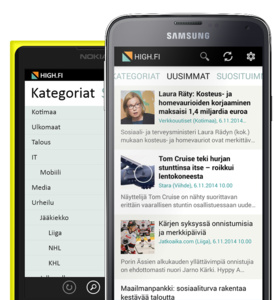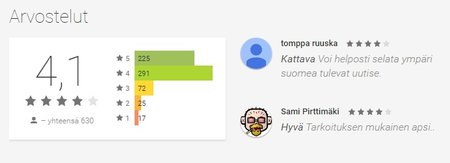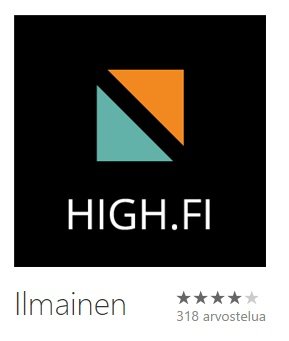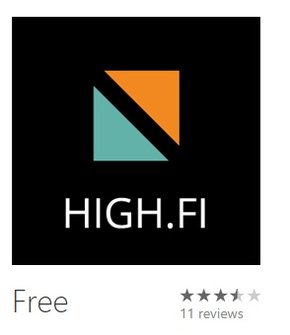 As we launched our first mobile app this year, it has been interesting to observe the small, but very important differences there are between the three major mobile app markets: Apple iOS (iTunes App Store), Android (Google Play) and Microsoft's Windows Phone (Windows Phone Store).
As we launched our first mobile app this year, it has been interesting to observe the small, but very important differences there are between the three major mobile app markets: Apple iOS (iTunes App Store), Android (Google Play) and Microsoft's Windows Phone (Windows Phone Store).
So, we feel that it is important to understand those little differences between the three stores and what is important for you, as a developer, when you plan your app strategies.
Ability to respond to reviews
One of the key differences is the developer's (in-)ability to respond to the reviews the app gathers. Both, negative and positive feedback often require some level of reply from the developer – if for nothing else, for common courtesy.
iOS
- developers can't reply / respond to reviews, at all
Android
- developers can reply to all reviews and the replies from the developer are visible in the Play Store for everybody (reply is shown underneath the review the reply is for)

replying to an Android app review
Windows Phone
- Starting from WP8.1, developers can reply to all reviews (written by users using WP8.1 or newer version of the Windows Phone). Replies are private and sent directly to the reviewer's email address, alongside with a link to update his/her review accordingly, if there's a need to do so (say, user complained about a bug in v1.0 and gave the app 1-star rating. Developer replies that they have now fixed the bug and that the new v1.1 is available -> user is encouraged to update the review accordingly)

replying to a Windows Phone app review
Localization
Sometimes people react to apps very differently depending on which country they live in, what language they use, etc.
iOS
- Reviews are local, meaning that the reviews & ratings given by Brazilian users are visible only to Brazilian users. Furthermore, the average rating of the app is local: same app can have average rating of 4.5 / 5 in United States, but only 2.2 / 5 in France (say, maybe badly translated app experience or something similar)
Android
- Reviews are local, but the average star rating is global. Thus, the actual review texts given in Swedish are visible only to Swedish users, but the star ratings given by Swedish users affect the average rating value (=average rating is the same for all users).


Android app reviews; Italy vs Finland
Windows Phone
- Similar to iOS, reviews AND the average rating is local. Same app can have totally different average rating in different countries and only locally given reviews are visible to specific country's users.


Average rating for the same app, in Finland and in United States
Version-specific rating
When you launch your app, it is likely to be somewhat buggy at first, no matter how much effort you put into your testing process. When real users start using your app, you'll learn how to improve your app's visuals, fix the bugs, etc.
Thus, it is extremely important to know whether the reviews you got in your early days will affect your average rating later.
iOS
- On iOS, reviews and average rating is version-specific. Thus, when developer updates the app to new version, the previous reviews get (mostly) vanished. Sure, in the app description page, there's a separate average rating visible, called "All versions", but the star rating shown in charts is the average rating of your app's most recent version.
Android & Windows Phone
- Reviews and ratings never expire -- even the reviews given to your v1.00 will haunt your app for the rest of its life. Sure, the reviews themselves have a label "Review for older version", but the fact remains that the old ratings affect the average rating, which is the most important thing to know here.
Summary
To wrap it up: iOS is bit more forgiving than its rivals, as your old mistakes can get wiped away with a proper new version. Furthermore, with Windows Phone and iOS, bad translations and some other localization issues affect only users of one specific country/language in terms of bad reviews. Google doesn't forgive you any of those issues: all reviews count, forever and for all regions.
iOS' good aspects get somewhat diminished with the fact that on iOS, you, as a developer, cannot communicate back to the reviewers. On Android and WP, you can reply to bad reviews and ask for new chance, which is important especially if you have fixed the issues the user addressed in his/her review.














